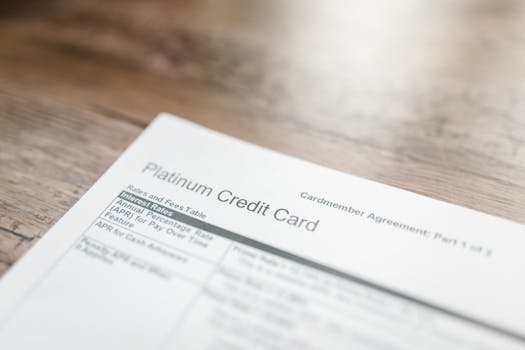Financial literacy
How to Develop a Growth Mindset Toward Money
Ready to create a growth-focused money mindset? Explore concrete tips for changing old money beliefs, building resilient habits, and making progress with practical steps you can start today.
Advertisement
Plenty of people view money as a source of stress or confusion, but changing your thinking can completely shift your results. Embracing a money mindset means moving beyond old beliefs and exploring practical strategies that open more doors and opportunities.
The way you approach money affects everything from your savings habits to your willingness to invest in yourself. When you decide to develop a positive and adaptable money mindset, you’re rooting for your future self every day you take action.
If you’re ready to break free from limitations and want guidance on creating healthier perspectives around spending, saving, and earning, the following sections will provide actionable insights for lasting change. Let’s rethink how you approach your finances together.
Identifying Fixed Patterns to Build Flexible Money Thinking
Recognizing old financial habits lets you spot what keeps you stuck so you can reframe your money mindset step by step. Many people inherit these habits from family or friends, but you can choose new patterns by actively observing your reactions to money moments.
Shifting focus away from guilt or fear requires curiosity. Imagine jotting down what you say or feel about every bill, windfall, or unexpected purchase. This builds awareness and opens honest dialogue about your money mindset, so change becomes possible.
Spotting Unhelpful Money Scripts in Everyday Life
Phrases like “I’m just bad with money” or “I’ll never get ahead” reinforce a fixed mindset. Replace them with statements such as “I’m learning to manage money well,” which empowers daily progress and self-compassion.
Look for these phrases in conversation—sometimes friends or family repeat scripts from decades ago. When you catch yourself echoing them, pause and rephrase. It’s a quick win for your money mindset and helps you practice kindness over criticism.
After hearing a negative money script, jot it down in a notebook. Later, rewrite it with a growth spin and repeat the new sentence aloud. This daily habit creates new grooves for your thinking and primes your mind for positive change.
Comparing Limiting vs. Adaptive Beliefs
Fixed beliefs act like invisible walls, making almost every financial move feel risky or doomed. Adaptive beliefs say, “I can learn new skills with effort.” Over time, these beliefs create flexibility where anxiety used to live.
To shift beliefs, write down one doubt and its opposite. Read both back and notice your body’s reaction. With repetition, the adaptive belief feels more natural, guiding your daily money mindset upgrades.
Imagine writing, “Budgeting never works,” then comparing it with “Each new budget teaches me about my choices.” Noticing which feels lighter will help anchor you during future money decisions.
| Old Money Script | Growth-Wise Replacement | Immediate Effect | Next Step Action |
|---|---|---|---|
| I’m not good with money | I’m learning how to manage money | Reduces self-blame | Track spending for a week |
| I’ll always be in debt | I can take small steps toward debt freedom | Boosts hope | Set up a debt payoff tracker |
| Money stresses me out | I can face financial challenges calmly | Lowers tension | Schedule 10 minutes for money check-in |
| I can’t save, my expenses are too high | I can start with tiny savings now | Encourages action | Set up an auto-transfer of $1/week |
| Rich people are just lucky | Financial growth is about habits | Lowers envy | Read one personal finance article weekly |
Building Daily Money Habits That Shift Your Perspective
Consistent routines reinforce your money mindset every day, making growth automatic rather than forced. Tiny tweaks add up, so focus on what you’ll reliably do instead of chasing perfection. Rituals build confidence, one repetition at a time.
Attach your new habits to pre-existing routines for effortless consistency. Try syncing a financial update with your morning coffee or reviewing your budget while waiting for dinner. These choices rewire your money mindset for steady improvement.
Creating a Personalized Money Habit Stack
Start by listing your three most common daily activities and pair each with one micro-money action, like checking a budget app or reviewing yesterday’s purchases. Building your own stack keeps momentum strong without needing willpower.
For example, “When I finish brushing my teeth, I’ll log my lunch expense.” Connecting habits to established cues shortens the learning curve and means your money mindset grows naturally every day.
- Update savings goal right after finishing morning coffee for daily motivation
- Open banking app each evening during TV commercials to review recent transactions
- Transfer $1 to savings before lunch to reinforce micro-saving
- Write down one financial win every Friday to celebrate progress
- Scan upcoming bills Sunday evenings to stay proactive, not reactive
These small actions, repeated in a pattern, shift your money mindset steadily, making improvement nearly automatic. Every completed action becomes positive reinforcement.
Replacing Negative Self-Talk About Spending
Replace “I always waste money on takeout” with “I’m choosing what matters most for my budget.” Self-kindness speeds up the process and shifts shame to self-trust—a cornerstone of a healthy money mindset.
If you overspend, write the trigger and a supportive comment—just as you’d reassure a friend. Over time, this softens resistance to new habits and makes trying again feel less daunting, proving you can trust your growth process.
- Write down what led to unexpected spending for honest insight
- Encourage yourself with “I’m learning from this” after slip-ups
- Identify one impulse buy pattern to address with a reminder note
- Celebrate any avoided purchase as a win, no matter the size
- Share your perspective shift with someone supportive for validation
This pattern of reviewing and reframing spending choices grounds your money mindset in facts instead of feelings—and gives you material for future decision-making scripts.
Practicing Resilience When Setbacks Happen
Using setbacks as springboards, not reasons to quit, gives your money mindset lasting strength. Financial resilience forms by analyzing each setback, adjusting your approach, and giving yourself credit for every attempt, even if things didn’t go as planned.
Real-world resilience means bouncing back from an unexpected car repair or job loss. Immediate analysis—What happened? What will you tweak next time?—turns every misstep into new wisdom for your future finances.
Celebrating Small Wins Regularly
Every financial success, no matter how minor, deserves acknowledgment in your money mindset journey. Mark actions like resisting a splurge or increasing retirement contributions, and let the satisfaction motivate further steps.
Texting a friend about paying off a small debt or journaling, “I stuck to my grocery budget,” makes progress tangible. These rituals prove momentum is building, making each next step feel more natural to attempt.
For quick wins, keep a list of “today’s victories” in your notes app or on paper. Review them before making tough financial choices to remind yourself that growth, not perfection, drives results.
Bouncing Back from Surprises
A sudden expense can trigger frustration or blame, but pausing before reacting creates room for perspective. Try saying aloud, “I have solved problems before and can solve this too.” This simple phrase shapes your money mindset under pressure.
Shake out tension physically—clench your fists, then release as you breathe out. Stand up and walk. Changing your posture helps your mind regroup, so you see options instead of panic.
Then, map one concrete step: call the provider for a payment plan, or skip dining out for a week to recover slowly. Committing to action, even if small, moves the money mindset from freeze to forward motion after hurdles.
Fostering Learning and Curiosity in Financial Decisions
Expanding your financial vocabulary and exploring new information trains your money mindset to see options instead of limits. Every time you learn a new term or digest a fresh idea, you add another tool to your financial toolbox.
Push yourself to find new podcasts or videos that demystify finances. Seeking out unfamiliar concepts—like index funds or zero-based budgets—turns a rigid money mindset into a curious, adaptive lifelong learner.
Exploring New Resources for Ongoing Growth
Subscribe to a free newsletter, join a community group, or download a budgeting template. The point isn’t perfection, but to make learning part of your weekly or monthly routine.
Once you encounter something new, test it quickly: adjust one line in your spending, or ask a friend if they understand the same financial term the same way. This open exchange cements your money mindset as a work in progress.
Leave notes in your calendar to revisit new concepts in a week. If you struggled, tweak your approach and try a different resource. Reinforcement ensures new insights stick and your confidence grows incrementally.
Capturing Lessons from Mistakes and Mistaken Assumptions
If you ever miss a payment or invest in something that flops, take five minutes to describe what led you there. Write, “I thought this would go differently because…” and wrap with one practical tweak for the future.
Transforming mistakes into lessons guarantees your money mindset won’t be shaken by setbacks. Each reflection becomes a protective buffer in future challenges, making you less likely to fear new risks.
For recurring mistakes, review your reactions every few months. Identify trends and brainstorm gentle reminders that catch you before mistakes repeat, such as “Check all due dates on payday.” Even a single note can save stress.
Turning Comparison Into Motivation and Not Self-Doubt
Comparing yourself with others can undermine your money mindset if you feel you’re falling behind. Instead, use positive examples as inspiration, seeking insights you can immediately adapt while releasing any urge to compete.
Observe what someone you admire does well, then ask, “Which micro-action could I model?” By mimicking technique instead of comparing outcomes, you strengthen your unique path and gain skill-specific growth.
Drawing Lessons from Others’ Successes, Not Just Stories
When you hear about a friend boosting savings, listen for their process, not just the headline. For example, they say, “I set an automatic transfer right after payday.” Copy the tactic, not their total amount.
In your next conversation, ask for a behind-the-scenes view: “What made it hard to get started?” Gathering practical details sharpens your money mindset, since you hear the real steps, challenges, and adaptations needed to reach any milestone.
Keep a “mini playbook” of tactics you’ve borrowed, with notes about how each feels in your context. Updating this playbook regularly ensures your money mindset stays agile, drawing strength from a growing range of real-world strategies.
Avoiding Common Comparison Traps
Scrolling social media or hearing about pay raises can spark envy. Instead of thinking, “I’ll never get that,” reframe with, “That’s one model; what’s right for me?” Use curiosity to explore how others’ journeys spark tweaks in your own plans.
If you feel discouraged, close the app or step away. Tell yourself, “My path moves at my speed.” Focus on what’s within control today—for example, automating a $5 transfer or brainstorming ways to boost income over coffee.
Practicing this self-talk every time comparison arises trains the money mindset to favor constructive evaluation over undermining self-judgment, leading to healthier financial self-esteem over months and years.
Anchoring Progress With Visible Milestones and Reflection
Celebrating every small achievement keeps your money mindset enthusiastic and results focused. Marking milestones doesn’t just build motivation—it also reminds you of progress when setbacks occur, making resilience easier when challenges arise.
Use physical or digital trackers—charts, checklists, or bullet journals—so financial wins become visible. A chart showing extra debt payments adds a sense of accomplishment, while checklist streaks reinforce consistent habits.
Structuring Simple Milestone Trackers
Design custom trackers for short-term wins like weekly no-spend days, or longer goals like saving an emergency fund. Break big milestones into smaller checkpoints for a constant sense of progress and avoid feeling overwhelmed.
Some like a colorful calendar with stickers for each money win; others prefer an app’s bar graph. Choose the format that feels motivating to you and review it anytime discouragement creeps in.
Updating trackers every week keeps past success top-of-mind and safeguards your money mindset against “I’m not making any progress” thinking. Use each checkmark as a nudge toward your next right step.
Embracing Reflection for Ongoing Adjustment
Set aside a few minutes each month to reflect on wins, stumbles, and learning moments. This could be a quiet Saturday morning or the last day of every month—whatever fits your schedule consistently.
Journaling three things you’re proud of, plus one thing to try differently, keeps the focus on actionable improvement. This process strengthens your money mindset by highlighting learning over all-or-nothing thinking.
Over time, these reflection sessions deepen self-trust, making it easier to try new strategies, stay kind after slip-ups, and course-correct when your financial landscape changes.
Staying Adaptable: Evolving Your Money Mindset Throughout Life Stages
No matter your age or background, your financial goals will shift over time. Maintaining flexibility in your money mindset allows you to evolve as your circumstances and ambitions change, so growth never stalls.
Life events—new jobs, moves, or family changes—demand adaptability. Revisit and revise your habits to make sure your money mindset is updated to fit each phase, always using current reality as your launching pad.
Redefining Priorities as Circumstances Shift
If you land a new job, boost savings for the first three paychecks instead of immediately upgrading your lifestyle. Write, “Right now, stability is my goal,” and hang it somewhere visible, so every decision stays intentional and grounded in your updated money mindset.
When family size grows or your goals shift, create a “priority list” and check each spending or saving choice against it for a month. This ensures new ambitions are supported by current daily actions.
Adapting in this way prevents outdated habits from stalling your progress and keeps your money mindset responsive to real life rather than old routines.
Blending Consistency With New Approaches During Transitions
Consistency anchors the money mindset even during change. For example, keep your Friday review even when your income changes—but also experiment with a new tracking app or different budgeting style, so you’re not stuck in patterns that no longer serve you.
If a transition disrupts your routines, reduce pressure by sticking to one non-negotiable habit. Maybe it’s checking your account every Tuesday or journaling about money feelings weekly. One reliable anchor is enough to maintain momentum through hard times.
Trial and error is part of growth. Give any new habit or approach two full weeks before deciding if it fits. This measured flexibility keeps your money mindset agile and realistic, whatever changes arise.
Reflect, Refine, and Thrive in Your Money Mindset Journey
Nurturing a growth-focused money mindset is a lifelong adventure. By identifying old patterns, building daily rituals, and regularly reflecting on milestones, you equip yourself to make progress and weather challenges with resourcefulness and confidence.
This approach matters because it makes financial growth feel possible for anyone, regardless of their starting point. When you focus on steady improvement and self-forgiveness, setbacks feel manageable and each next step feels worthwhile.
True transformation begins with consistency and kindness. Celebrate tiny wins, question old scripts, and remember: every single day provides a fresh opportunity to refine your money mindset and thrive on your terms.





